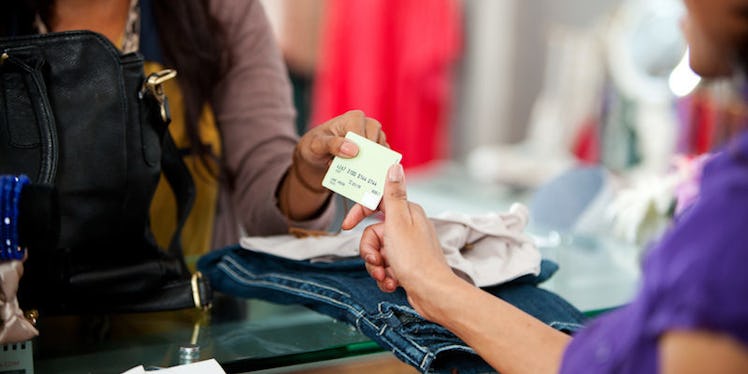
7 Millennial-Sized Tips To Manage Your Money And Crush Adulthood
We've all been there when we check our bank account statement and see a much lower number than we had anticipated (or even in the negatives in worst case scenarios).
Some people seem to have an inherent knack for saving money while others are well-equipped for a shopaholic intervention. From being a broke college student to getting your first promotion, with more disposable income, there are ways to stretch your dollar longer that you might think.
Here are seven helpful tips to be more financially responsible with millennial-sized pockets:
Divide your income three ways.
You want to have three types of bank accounts: spending, checking and savings.
Your spending account is for common things, like groceries, take-out, toothpaste or online purchases.
Your checking account should hold about 50 percent of your total income, and you should use it for bills or larger purchases. Whenever I get my paycheck, I tend to make frequent transfers from checking to spending to make online purchases or to get cash out of the ATM.
The savings account is for anything you eventually want to purchase in the future, but you haven't yet acquired the funds (i.e. a down payment on a car, a big-screen TV or a splurge for new furniture from IKEA).
For traveling, I put a few hundred dollars in my savings account after every paycheck. That way, if I want to fly out to NYC or San Francisco to visit friends, it won't be a huge strain on my finances. When the time comes to tackle the larger purchases, just transfer from your savings to your checking or spending.
Keep tabs on your student loans.
Try your hardest not to fall behind on those payments. If you can't afford to pay them back just yet, contact financial advisors at the loan agencies, or research a student loan forgiveness program. Piled-up interest is everyone's worst nightmare.
Track what you spend.
If you're one to frequently overdraft, check your bank account statements religiously. Write it down if you have to. You always want to know the direction in which the cash flows.
Know where to get tax breaks.
I highly recommend taking an online class from Udemy that teaches you tax preparation. There's a plethora of tax write-offs that I didn't even know about until I did my homework.
For online services, TurboTax is a cheap, user-friendly program and allows you to file yourself. Although I used H&R Block, which was very helpful, this year, you usually end up paying a few hundred dollars for their in-person services.
Consider quality over quantity.
Cheaper doesn't always mean better. In fact, it could end up costing you more in the long run, like dirt-cheap clothing that falls apart after a few washes or a lawnmower that only lasts for six months. Pay attention to the materials your goods are made of, and assess the quality so you don't end up with defective products.
Consider investing.
If you have some disposable funds after responsibly accounting for your basic needs (and crushing adulthood), why not look into an IRA, mutual funds or stock accounts? Rather than splurging 200 dollars on a designer bag, consider investing. It'll be a sweet satisfaction to see 200 dollars turn into a potential 2,000 dollars over the next five years.
Though the market is never for certain, it's certainly worth a shot. You have the option to use a financial advisor, but I wouldn't recommend it. You run the risk of a financial advisor putting their interests before your own. If you're looking to read up on some investment tips yourself, try "The Intelligent Investor" or "The Little Book of Common Sense Investing."
Never spend money you don't have.
If you follow no other tips, follow this one, as it's probably the most vital. Uncontrollable debt easily traps you with a tempting credit card.
Take a crucial look at your income compared to what your expenses are. If you're continuously falling behind on payments or if your account balance is perpetually abysmal, then you're likely trying to live above your means.
Perhaps your apartment is too expensive or maybe three nights a week at ritzy, roof-top bars are finally taking a toll on your wallet. Whatever the cause, figure it out quickly and adjust your lifestyle accordingly. If you're plagued by a heavy case of buyer's remorse after a purchase, it probably means you shouldn't have made it.